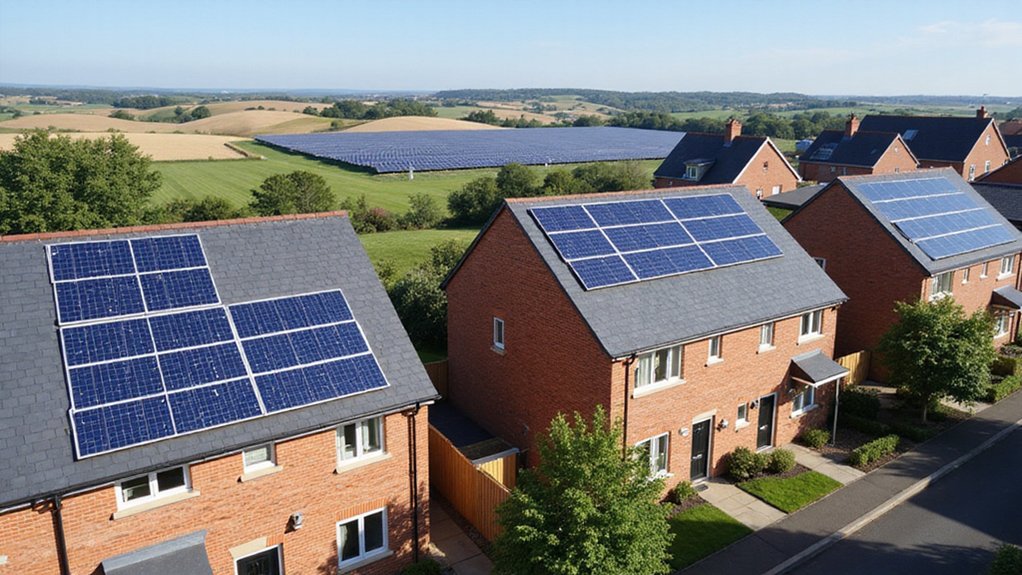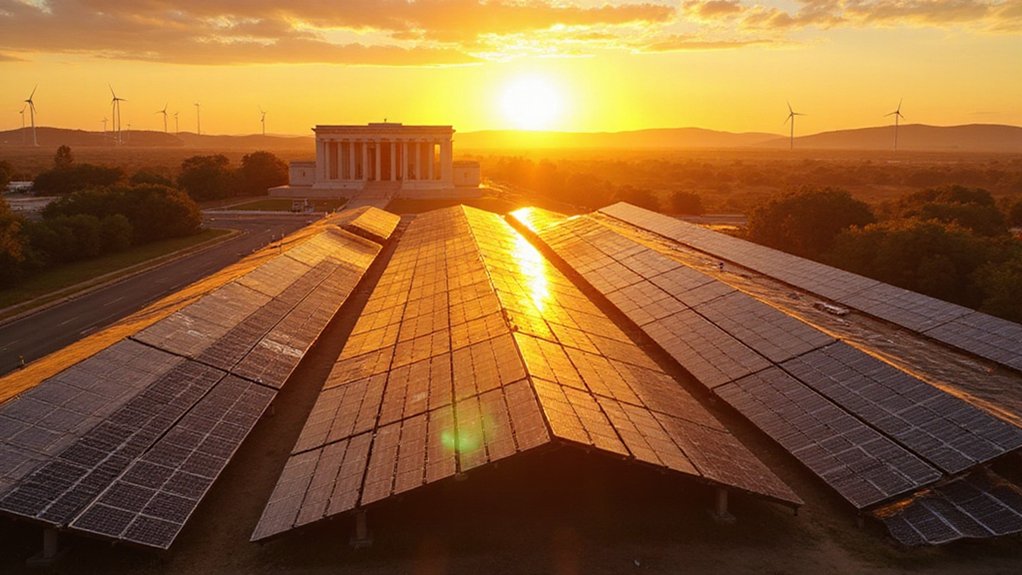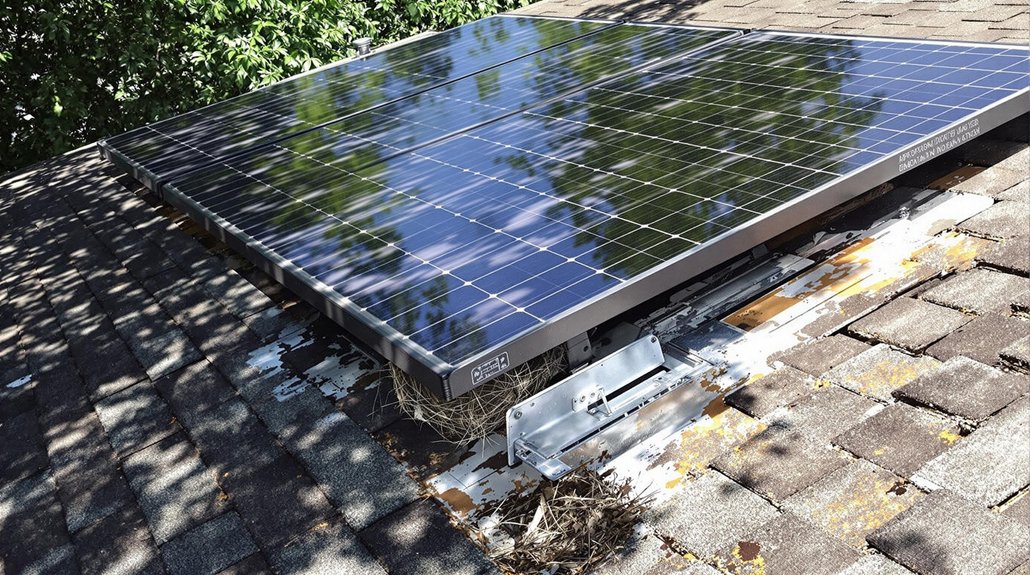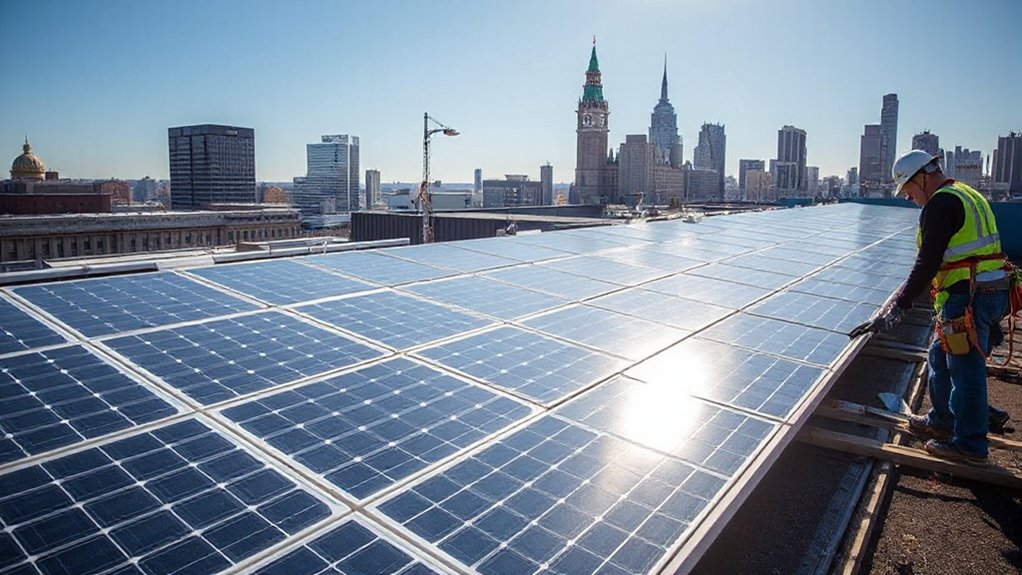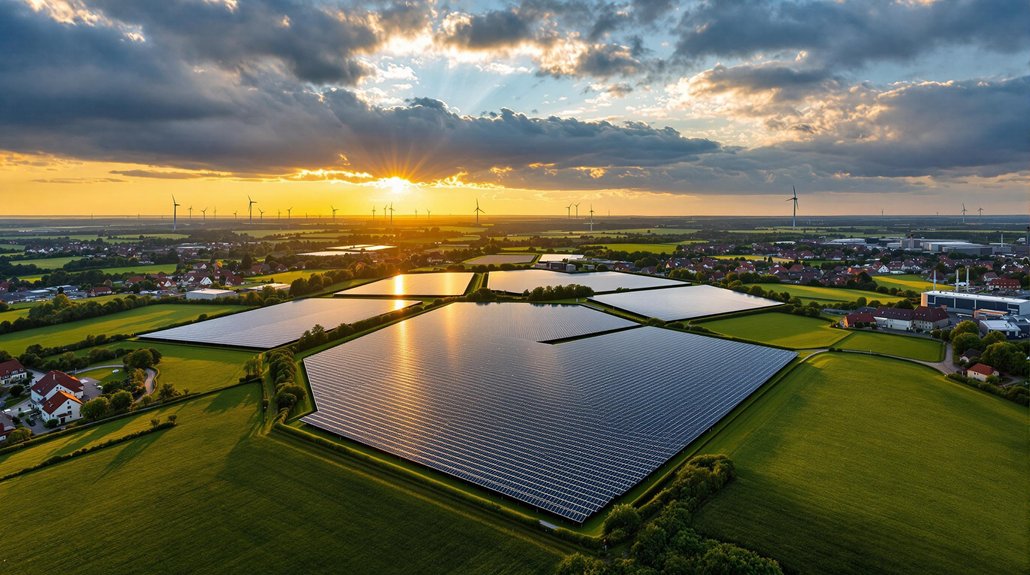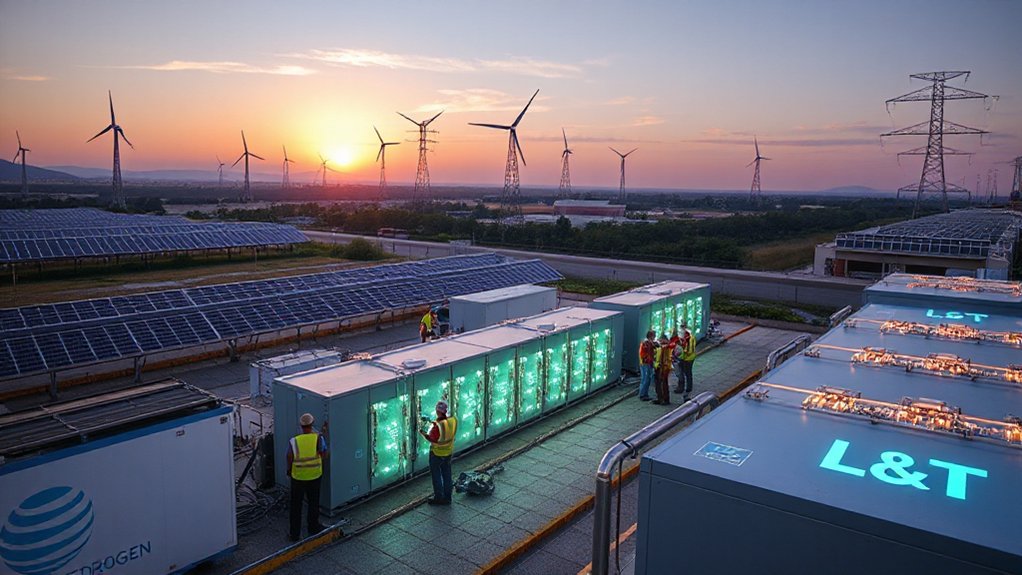England’s Labour government will require all new homes to have solar panels starting in 2027. This “rooftop transformation” aims to reduce household bills and meet climate goals. Officials are working with builders to guarantee a smooth changeover. The UK currently gets about 4% of its energy from solar but aims for 20% by 2030. This mandate represents a major shift in how England powers homes and fights climate change.
Sunshine is powering England’s clean energy future as the country initiates an ambitious solar expansion plan. The Labour government has announced a “rooftop transformation” that will require all new homes to include solar panels from 2027. This policy represents a major shift in how England approaches residential energy production.
Ministers are currently working with builders to guarantee a smooth changeover to this new requirement. The government believes solar panels are a “win-win” solution that can reduce household bills while helping the country meet its climate goals. They’re also working to make it easier for existing homeowners to add solar panels to their properties. The current UK solar capacity stands at 14GW of power, producing approximately 4% of the country’s energy needs. User-friendly websites with clear pricing plans will be crucial to eliminate confusion and hidden costs for consumers navigating solar adoption.
Beyond homes, England is approving large solar farms after years of political delays. Three major projects in eastern England – Gate Burton, Sunnica, and Mallard Pass – will produce about two-thirds of the solar energy installed in the UK last year. These large-scale installations will help meet the country’s growing energy needs.
The UK aims to get 20% of its electricity from solar by 2030. This requires a five-fold increase in solar capacity nationwide. The country joined the global milestone of 1 terawatt of solar power in 2022 and continues to add more capacity each year. Following global trends where renewables now supply 21% of electricity, the UK is accelerating its transition away from fossil fuel dependence.
For consumers, the changes mean potential savings on energy bills. Starting in 2027, homes with solar panels will sell excess electricity back to the grid at a minimum of 50% of the market price. This replaces older subsidy programs that were funded by taxpayers.
The solar expansion is expected to create new jobs in the green energy sector. It also provides a stable framework for both consumers and businesses to plan their energy investments.
This solar transformation forms a critical part of the UK’s broader climate strategy. By harnessing natural sunlight, England hopes to reduce its carbon emissions while increasing its energy independence in a world facing climate challenges.
References
- https://www.billgosling.com/blog/how-cx-is-energizing-the-uks-solar-revolution/
- https://vision2030.co.uk/2022/10/17/join-the-solar-revolution-how-the-government-is-helping-out/
- https://www.solarpowereurope.org/insights/outlooks/global-market-outlook-for-solar-power-2023-2027/detail
- https://www.carbonbrief.org/daily-brief/labours-rooftop-revolution-to-deliver-solar-power-to-millions-of-uk-homes/
- https://www.dutchnews.nl/2024/11/solar-panel-owners-face-new-payment-system-from-2027/
